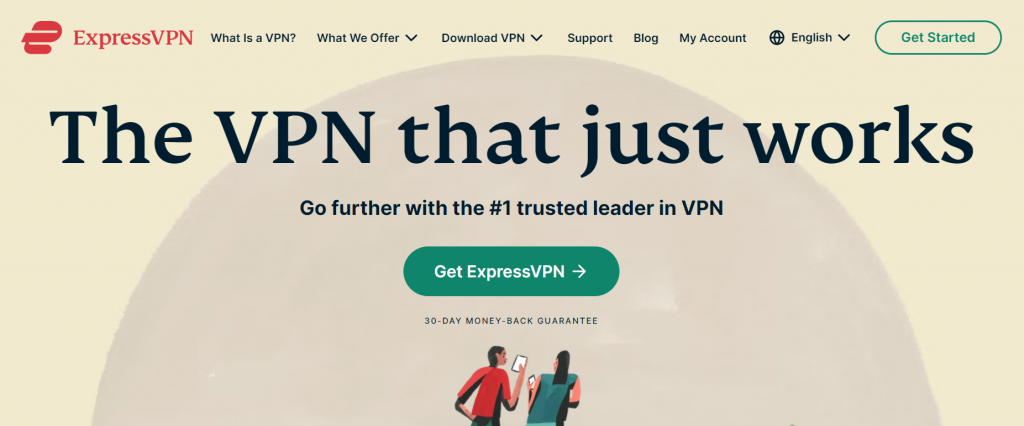
A VPN, or Virtual Private Network, is a tool that helps you stay safe and secure online. When you connect to the internet, your computer is assigned an IP address. This address can be used to track your location and online activity. A VPN encrypts your connection and changes your IP address, making it difficult for third-parties to track you online. In addition, a VPN can also give you access to geo-blocked content and websites. If you’re new to VPNs, this post will teach you everything you need to know about how they work and why you should start using one.
What is a VPN?
A VPN, or Virtual Private Network, is a tool that can be used to help improve your online privacy and security. A VPN essentially creates a private, secure tunnel between your device and the internet, allowing you to browse the web anonymously and securely.
There are many benefits to using a VPN, including improved security and privacy, bypassing internet censorship, and accessing blocked content. However, it’s important to choose a reputableVPN provider with strong security protocols to ensure your data is protected.
If you’re looking for a VPN for beginners, we recommend checking out ExpressVPN or NordVPN. Both providers offer great security features and easy-to-use software.
How do VPNs work?
When you connect to the internet, you’re assigned an IP address by your ISP. This IP address is how websites and other internet-connected services know where to send the data you’re requesting. When you connect to a VPN, the VPN server assigns you a new IP address from their pool of addresses. This has a few advantages:
Your real IP address is hidden from the sites and services you’re connecting to. This can be useful for bypassing geo-restrictions, or simply keeping your browsing activity private.
The new IP address assigned by the VPN server may be in a different country than your real IP address, which can be useful for accessing content that’s only available in certain regions.
The VPN server encrypts all the traffic between your device and the internet, making it much harder for anyone to snoop on your activities.
What are the benefits of using a VPN?

A VPN can offer many benefits, including increased security and privacy, access to restricted or blocked content, and anonymity.
Increased security and privacy: A VPN encrypts your traffic and makes it anonymous, so your ISP or government can’t spy on you. Access to restricted or blocked content: A VPN can bypass censorship and geographic restrictions, so you can access any website or content you want. Anonymity: A VPN hides your IP address and makes you anonymous online, so your identity is protected.
How to choose the right VPN for you
There are a lot of different factors to consider when choosing the right VPN for you. Here are a few things to keep in mind:
-What is your budget? There are many free and paid VPN options available. If cost is a concern, narrow down your choices to a few that fit within your budget.
-What are your needs? Are you looking for a VPN to protect your privacy while browsing the web? Or do you need a VPN to access geo-blocked content? Make sure the VPN you choose can meet your needs.
-How easy is it to use? Some VPNs can be challenging to set up and use. If you’re not tech-savvy, look for a VPN with an easy-to-use interface.
-What devices does it support? Make sure the VPN you choose works with all of the devices you want to use it on.
Once you’ve considered all of these factors, you should be able to narrow down your choices and find the best VPN for you.
How to set up a VPN
If you’re new to VPNs, this guide will show you how to set one up on your computer. A VPN, or Virtual Private Network, allows you to create a secure connection to another network over the Internet. This can be useful if you’re trying to access a network that’s not normally accessible, or if you want to add an extra layer of security to your browsing.
To set up a VPN, you’ll need to sign up for a service and then install the software on your computer. We recommend ExpressVPN as a good option for beginners. Once you’ve signed up and installed the software, open it and connect to the server of your choice. That’s it! Your computer is now connected to the VPN.
If you’re using a public Wi-Fi connection, we also recommend enabling the “encryption” option in the software, which will scramble your data so that anyone trying to snoop on your connection won’t be able to read it.
Our Recommendation: Express VPN

If you’re looking for a VPN with fast speeds, strong security, and great customer service, we recommend ExpressVPN. This provider offers a wide range of features at a competitive price, and it’s our top pick for VPN beginners.
ExpressVPN is one of the most popular VPN providers on the market, and for good reason. It offers fast speeds and strong security, making it a great choice for anyone looking to protect their online privacy. The company has a strict no-logs policy in place, ensuring that your data remains private at all times.
Customer service is another area where ExpressVPN shines. The company offers 24/7 live chat support, so you can always get help if you need it. There’s also a 30-day money-back guarantee, so you can try the service risk-free.
If you’re looking for a VPN to protect your online privacy, we highly recommend ExpressVPN.





